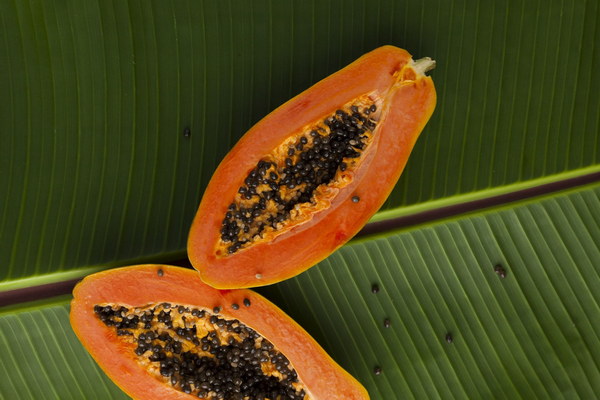Does Ginger Also Help Remove Dampness Exploring the Traditional Uses and Modern Benefits
In the realm of traditional Chinese medicine, the concept of dampness is often associated with various health issues, including fatigue, weight gain, and poor digestion. One of the most commonly recommended remedies for dampness is ginger. But does ginger also help remove dampness? In this article, we will delve into the traditional uses of ginger in Chinese medicine and explore its potential benefits in alleviating dampness.
The Concept of Dampness in Traditional Chinese Medicine
In traditional Chinese medicine (TCM), dampness is a concept that refers to an excess of dampness in the body, which can lead to a variety of health problems. Dampness is believed to be caused by an imbalance in the body's yin and yang, which are the two fundamental forces that govern the body's functions and overall health.
Dampness is often characterized by symptoms such as:
- Fatigue and weakness
- Weight gain, particularly around the abdomen
- Poor digestion and bloating
- Mucus production and sinus congestion
- Painful joints and muscles

- Premature aging and lack of energy
Ginger: A Time-Tested Remedy for Dampness
Ginger has been used in traditional Chinese medicine for centuries as a potent herb that helps alleviate dampness. It is believed to have a warming effect on the body, which helps to expel dampness and restore balance.
Traditional Uses of Ginger
- Digestive Health: Ginger is often used to improve digestion and alleviate bloating, which are common symptoms of dampness.
- Joint and Muscle Pain: The anti-inflammatory properties of ginger are thought to help reduce joint and muscle pain caused by dampness.
- Mucus Production: Ginger can help reduce mucus production in the body, thereby alleviating sinus congestion and other related symptoms.
- Fatigue and Weakness: By warming the body and improving circulation, ginger can help alleviate fatigue and weakness associated with dampness.
Modern Scientific Insights
While the traditional uses of ginger are well-documented, modern scientific research has also begun to explore the potential benefits of ginger in treating dampness-related conditions.
- Anti-Inflammatory Properties: Studies have shown that ginger contains compounds called gingerols and shogaols, which have anti-inflammatory properties that may help alleviate joint pain and reduce inflammation.
- Digestive Health: Ginger has been found to enhance digestive enzyme activity, which can help improve digestion and reduce bloating.
- Mucus Production: Some research suggests that ginger may help reduce mucus production in the respiratory tract, which can help alleviate symptoms of colds and flu.
How to Use Ginger for Dampness
To use ginger as a remedy for dampness, you can incorporate it into your diet in various ways:
- Ginger Tea: Boil fresh ginger slices in water to make a soothing ginger tea. Drink it warm to help warm your body and expel dampness.
- Ginger Soup: Prepare a soup with ginger, garlic, and other herbs that are traditionally used to expel dampness.
- Ginger Spices: Add fresh or dried ginger to your cooking to enhance flavor and potential health benefits.
Conclusion
While there is no definitive scientific evidence that ginger can completely cure dampness, its traditional uses in Chinese medicine and modern scientific research suggest that it can be a valuable addition to a dampness-relief regimen. Incorporating ginger into your diet may help alleviate some of the symptoms associated with dampness and contribute to overall better health. Always consult with a healthcare professional before starting any new treatment regimen.









